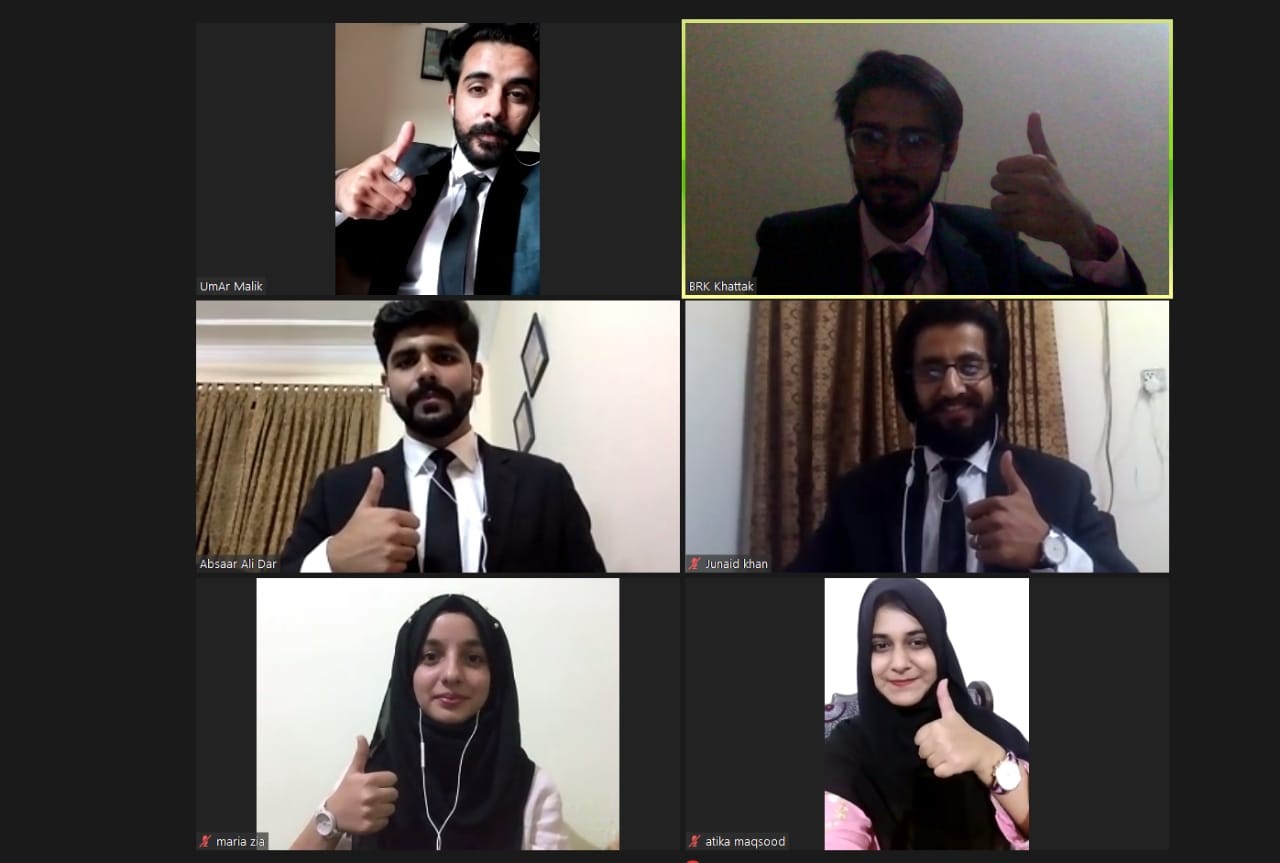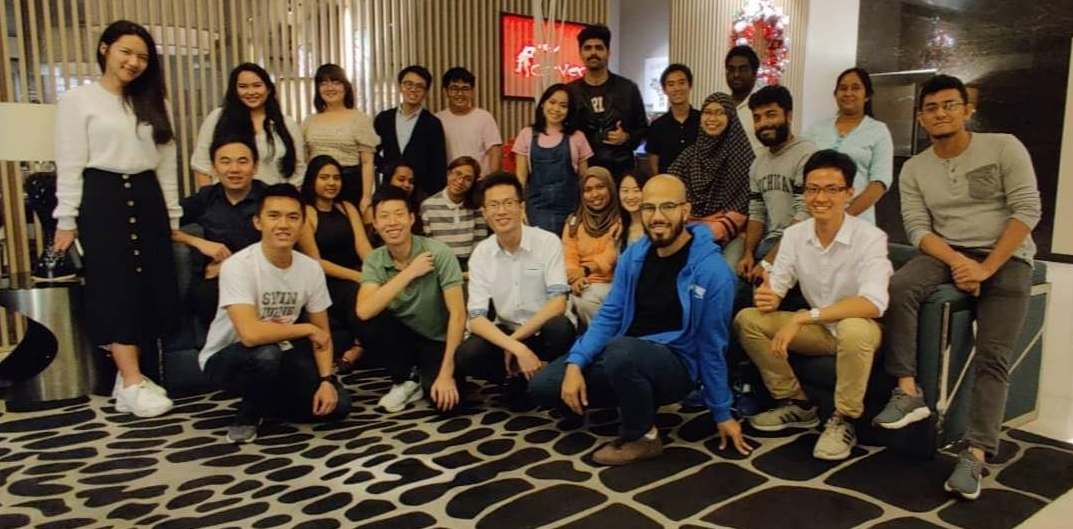With an avid purpose to change society’s perception towards mental health, Absaar Ali Dar launched his brainchild in the form of SOCH. As the start-up’s current Chief Executive Officer, the Swinburne graduate from Pakistan is determined to bring positive reform with free mental health services.
1. Tell us about SOCH and how it came to be.
SOCH provides an online platform for connecting people going through mental health disorders to a panel of psychologists. Operating from Islamabad, Pakistan, we provide free mental health services in the form of cognitive behavioural and talk therapy, mindfulness activities, and positivity exercises.

It started as part of a Megaproject for Amal Academy, which is a fully-funded programme by Stanford University, USA and PepsiCo to develop graduate professional skills. After graduating from this fellowship programme, I then co-founded SOCH and hired a team from the domains of psychology, business operations, content writing, social media marketing, and technical support.
2. What life experiences led you to form a mental health start-up?
With some of our fellow team members having previous personal experiences with depression, this prompted the conversation and brought light to the idea of SOCH. Analysis from a survey we carried out also highlighted the areas of issue which needed addressing in our local society.
Armed with a concept, my team and I partnered with senior psychologist trainers to help practising psychologists in giving appropriate mental health care and treatment. We currently have over 15 practising panellists on board from the domains of Clinical and Child Psychology.

3. Navigating the topic of mental health can still be a social stigma. What is SOCH doing differently to address this and hopefully change this norm
Creating awareness among our society is first and foremost changing the social stigma. We are currently working on making free online counselling accessible in Pakistan, which is currently not available through any other source in the country. We also plan to have a dedicated team visiting education institutions to organise seminars on psychological awareness.
4. What were some unique challenges or barriers that you encountered in the process of entering this field?
Due to cultural norms and persisting stigmas, on top of being a non-profit organisation, it was harder in the beginning to convince volunteers to join us.
To meet this challenge, we launched an ambassadorship programme by targeting people from Amal Academy’s fellowship and different universities across Pakistan. To date, we have received over 100 applications from like-minded people who see the significance in our cause.

5. The World Economic Forum dubbed COVID-19 lockdowns as ‘the world’s biggest psychological experiment’. How do you predict the future of mental health care delivery?
My belief is that mental health care should lie more on patient-controlled services. Coercion has no place in mental health, so the key emphasis should be on increasing patients’ capacity to make decisions on their treatment.
Like an episode out of Black Mirror, my take for the future is that it should move towards more technologically-advanced delivery methods; such as artificially intelligent professionals online with avatars that patients can design themselves, or drones to deliver medication. While helpers can be available, there will be much less need for human staff. However, those who are uncomfortable with a virtual healthcare system will still be able to request for face-to-face appointments if they prefer human interaction.
6. Describe one thing you find fulfilling about doing what you do.
COVID-19 has certainly proven to be an extraordinary time for many, and being able to help individuals undergoing issues during this time has been gratifying.
On the other hand, being in a team of fresh graduates, this also inspires us to offer opportunities to work with other eager graduates through internship programmes and be able to provide a learning space for them to pick up skills from our organisation.
7. How did your education at Swinburne Sarawak prepare you for this path?
Back at Swinburne, my education covered Finance and International Business. Through the expertise I gained in financial analysis and management, paired with the university’s industrial experience, it gave me the kickstart to establish my own company.
I had the chance to lead different teams during my final-year projects, which not only helped me to handle complex business scenarios, but also cross-communicate with the management following a hierarchy system.
As a recipient of the Swinburne Emerging Leader award and the experiences I gained in the Student Council and Student Life Volunteering Programme, it truly gave me the leadership ability which has led me to where I am today.

8. You work with a young team of professionals, including other Swinburne graduates. How has this shaped your team’s culture and management style?
The process of ingraining culture into an organisation is simply one of communicating and integrating a broad cultural framework throughout the organisational process, which makes it easier to align when all of us understand our values and direction of the broader organisation.
We have a greater sense of community despite having a young international team, which inculcates our learning from a global perspective and help brand ourselves in respective countries.
9. What are some ways you take care of your emotional wellbeing on your days off?
I read inspiring poetry or quotes and make a gratefulness list. I also enjoy hiking to take in the beauty of nature and playing football.
10. What can we hope to see from SOCH in the future?
Ideally, we are looking to expand operations in more countries, which will include offering our ambassadorship programme outside Pakistan. In the meantime, with invitations from universities to deliver guest talks on empowering graduates for their own start-ups, we will continue targeting different universities across Pakistan to extend our reach.
Our technical support team is also working on applying machine learning chatbots on our website for interactive chats with clients.
To find out more about SOCH, visit their Instagram account at @wearesochteam.

